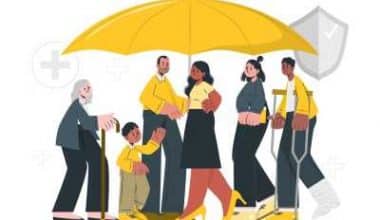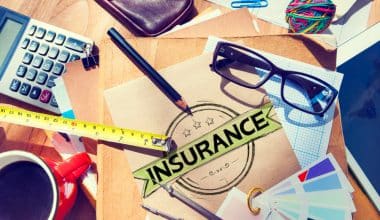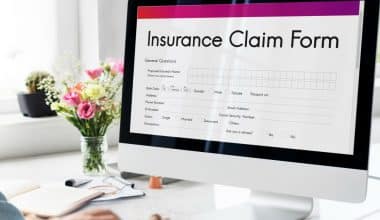As a retail shop owner, you know that there are a lot of risks involved in running your business. From theft and vandalism to customer accidents and product liability lawsuits, there are many things that could go wrong and cost you money.
That’s why it’s important to have retail shop insurance in place. Retail shop insurance can help you protect your business from financial losses in the event of an unexpected event.
In this article, we’ll discuss the different types of retail shop insurance available and how to get it.
What is Retail Shop insurance?
Retail shop insurance is a type of insurance that shields your store from legal action and other losses. A proper retail insurance should protect against common hazards and those specific to your business.
The following are some typical dangers that retailers must deal with:
- Accidents that cause consumers’ property damage or personal injury
- Disasters, accidents, or bad weather that harm commercial property
- Theft of, or harm to, goods, tools, or equipment used for business
- Compromise of computer systems’ data.
- Employee ailment or injury sustained at work.
- Revenue was lost after closing to fix physical damage.
Why do Retail shops need Insurance?
Retail shop insurance is a business insurance that shields you from various unforeseen events and mishaps, such as employee injuries and car accidents involving company vehicles. You may need insurance as a retail business owner to offer goods and services and obtain business licences. It becomes necessary once you make $10,000 monthly on retail platforms like Amazon for three consecutive months. You may complete your work and concentrate on the task without considering those annoying “what if” scenarios, provided you have the appropriate coverage.
How to Obtain Retail Shop Insurance
You can take the following six steps to obtain business insurance for your retail store:
#1. Evaluate Your Risks
What risks, catastrophes, mishaps, or legal actions could influence your company? Do your flower shop’s employees operate a fleet of delivery vans? Has the back of your computer repair shop any equipment that might be stolen or damaged? Take into account the general and industry-specific dangers that your retail outlet encounters.
#2. Establish Your Coverage Requirements
Consider what types of retail insurance can best cover your company based on the dangers you’ve identified. Consider alternative policies or add-on coverage in addition to general liability and commercial property insurance as a starting point.
For instance, a business with employees will require workers’ compensation insurance. Data breach insurance may be advantageous for an e-commerce company.
#3. Select a Shopping Method
Depending on your interests, you have various choices when looking for retail business insurance. You can use an insurance marketplace, speak with providers directly, or deal with a broker.
If you’ve never bought insurance before or have extensive coverage needs for your retail store, such as the need for various policies, an insurance broker might be beneficial. On the other hand, you might choose either of the other options if you’d prefer to take a more active approach and buy your policy right away.
#4. Pick a Service
When selecting a provider, you should look at the available policies and consider cost, coverage, and liability limits. Additionally, you ought to evaluate specific providers on your own. Examine online reviews and complaints and administrative procedures like how to submit a claim.
#5. Get Your Insurance
You’re ready to buy your insurance once you determine which provider is appropriate for your retail business. After purchasing your policies, you should create an online account (if offered), learn how to make payments, submit a claim, and contact customer service.
You should ask your provider for a certificate of insurance if you need proof of insurance for a commercial leasing application or agreement.
#6. Examine and Extend Your Insurance
When your plans are up for renewal, you can often review your retail insurance coverage once a year. Maintaining your current insurance each year is crucial, especially if a lease agreement requires it. However, you can reconsider your coverage at that time if your company undergoes a significant shift over the year that creates new risks, like expanding to a new location.
What Type of Insurance is Required For a Store?
Retail business owners must select insurance that meets their specific needs and specifications.
Here is a list of the distinct kinds of retail insurance that a store could require:
#1. General Liability Insurance
One of the most fundamental types of insurance that any company should consider is this one. It defends against claims of physical harm, material loss, and personal hurt. For instance, general liability insurance can pay medical fees and court charges if a customer slips and falls inside your shop.
#2. Property Insurance
It comprises the physical building (if you own it) and its contents, such as stock, fixtures and equipment. This covers damage to or loss of commercial property. Fire, storms, robbery, and vandalism are all risks that it guards against.
#3. Business Interruption Insurance
If you cannot function because of a covered occurrence like a fire or natural disaster, this coverage, frequently included in property insurance or a company owner’s policy, reimburses you for lost revenue and fixed expenses.
#4. Workers’ Compensation Insurance
You’ll require workers’ compensation insurance if you have employees. If an employee becomes ill or injured due to work, it pays for medical costs and a percentage of missed wages.
#5. Business Auto Insurance
A commercial auto insurance policy is required if your store owns and utilises vehicles for delivery or other business-related functions. This is so that any potential liabilities from accidents involving those vehicles are covered.
#6. Crime Insurance
This safeguards your company from losses from commercial crimes like theft, fraud, or forgeries.
#7. Cyber Liability Insurance
This insurance can cover costs connected to data breaches, such as notification charges, public relations efforts, and legal fees if you conduct online transactions or hold sensitive consumer information electronically.
#8. Equipment Breakdown Insurance
This includes fixing or replacing malfunctioning machinery, such as POS systems, refrigerators, or other machines.
#9. Employment Practises Liability Insurance
This shields your company against complaints filed by staff members about harassment, wrongful termination, discrimination, and other workplace-related issues.
#10. Products Liability Protection
There is always a possibility that the things you offer could lead to damage or injury. If someone alleges that a product you sold injured them or caused property damage, product liability insurance may be able to pay the legal costs and damages.
What Type of Protection Does General Liability Insurance Offer for Retail Shop
#1. Client Injuries
You may be liable for any medical expenses incurred if a customer or delivery person gets hurt at your retail location due to an accident, like sliding in a spill. The cost of a lawsuit might mount up rapidly. General liability coverage can assist with covering:
- Medical expenses
- Lawyer’s fees
- Court-ordered judgements and settlements
You should be aware that this policy does not cover worker injuries. You will require workers’ compensation insurance for that.
#2. Damage to Customer Property
Any small retail establishment is susceptible to accidents involving client property. You are protected by general liability insurance when client property is harmed.
For instance, you might be asked to change the battery in a watch by a client at your jewellery shop. General liability insurance might assist in defraying the expense of repairing or replacing the watch if it is unintentionally scratched during the process. This coverage may also pay for your legal costs, such as the price of hiring counsel if the customer decides to file a lawsuit.
#3. Injury Brought on by a Product
Product liability insurance, which guards against client injuries or other damage brought on by a product you sold, is typically included in general liability insurance for merchants. For instance, your general liability insurance can pay the customer’s medical expenses or legal costs if the consumer sues if a vape pen explodes and causes them harm.
This coverage may be part of your products-completed operations coverage, which protects you against subpar design and construction claims.
#4. Injuries from Advertising
Your retail business may be subject to claims of advertising harm if you advertise. When a rival alleges you plagiarised their logo or damaged their reputation, general liability insurance shields your business. It can assist in paying for disputes involving:
- Libel and slander both involve the spreading of false information.
- Copyright violation
- Safeguarding your small business with this strategy is crucial before launching an advertising campaign in a magazine, social media, or another medium.
Types of Retail Shop Insurance
Retailers commit a lot of time and resources to their companies. Retail shops can be protected from various catastrophes and mishaps with the aid of several types of insurance, with plans especially suited to their needs.
Those occurrences may include theft, vandalism, weather-related damage, utility outages, and other man-made issues, depending on the insurance. Here are three types of insurance coverage to think about while you purchase.
#1. Commercial Property Insurance
Insurance for commercial property is your “shop insurance.” Depending on the policy, it can shield your physical store and its contents against unforeseen losses caused by fire, storm damage, theft, vandalism, or damage from vehicles, including damage from aeroplanes. This feature of retail insurance coverage typically pays you back for covered incidents that harm your building, outside signs, furnishings, equipment, inventory, and possibly other people’s property that you maintain on your premises.
Imagine if your company’s computer systems, security camera equipment, and excess goods are all stored in the rear office, which has an electrical fire. It’s crucial to keep thorough records detailing everything you’ve bought and how much you paid so that your insurance provider can prepare to pay you back for the damage to these products. This aids your adjuster in valuing the items that require replacement.
Make a list of everything inside your company that is worth money, including the price of the building, if you own it before you buy a policy. Keep a backup digital version of your scanned receipts for products you purchase or upgrade. Another valuable technique for keeping track of the things your company owns is to take pictures and videos of the whole place of business and any auxiliary spaces, like storage.
#2. Liability Protection
You can think of liability insurance as “customer insurance.” It can protect your company against mishaps that harm consumers or other store patrons. Liability insurance could pay for medical expenses, court costs, and other damages if, for instance, a customer slips and falls on a damp floor in your store and sustains injuries. Injuries to employees, conflicts between employees, or damage to corporate vehicles are often not covered by liability insurance. Each of these problems calls for a different type of insurance.
By including umbrella plans, you can modify liability insurance to cover particular areas of your company. An insurance agent might advise employment-related practice insurance to cover your business in the case of a wrongful termination lawsuit or liquor liability insurance to shield your business from lawsuits brought about by serving alcohol at your establishment.
#3. Business Revenue Protection
Your “ride-out-the-storm insurance” is business income insurance. In conjunction with your property insurance, it pays you for lost wages resulting from a covered occurrence such as fire, wind, hail, or vandalism. You may need to close your business to fix storm-related damage temporarily. This insurance can restore lost net income, cover ongoing costs like payroll or the mortgage, and, if necessary, pay for relocation costs.
Additionally, this kind of covering is adaptable. An agent might advise an endorsement for dependent property coverage if, for instance, one of your suppliers cannot supply the things your company needs to operate. Suppose another organisation that your business relies on for supplies or services suffers covered damage. In that case, this insurance addition may be able to compensate you for any loss of income or increase in costs as a result.
Cost of Retail Shop Insurance
General liability insurance costs less than $45 on average per month for retail shops, although your costs may vary depending on your risks.
Retail stores’ insurance premiums depend on several variables, such as:
- Retail goods and services are provided
- Business property and equipment
- Profit Location
- Number of personnel
Are Stores Insured Against Shoplifting?
Theft is typically covered by commercial insurance coverage, while shoplifting is not. Shoplifting frequently occurs during business hours without anybody seeing it, making it challenging to claim that loss.
What Type of Insurance Covers Inventory?
Equipment, furniture, fixtures, and inventory you own, use, or rent inside your workspace are covered by business personal property (BPP) insurance.
What does Micro Insurance include?
Compared to conventional plans, this kind of insurance has a reduced level of coverage for a significantly lower payment. There are many types of microinsurance, including life, health, property, crop, and livestock insurance, as well as insurance against loss of income due to disability.
Conclusion
Every astute retailer knows increasing revenue is crucial, but so is lowering risk. But while you concentrate on internet sales and in-store foot traffic, what safeguards your company against unforeseen calamities? Introducing retail insurance.
Consider retail shop insurance as the safety net for your company. It’s there to catch those unforeseen difficulties before they endanger your company’s revenue.






